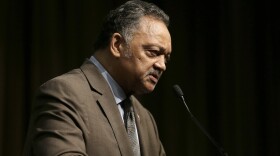Governor Roy Cooper vetoed three different bills Monday that had passed the legislature with bipartisan support.
The governor says in a news release that two of the bills would harm consumers. One would increase the maximum interest rate on consumer finance loans under $4,000 to 33%, up from the current 30%. The other would increase interest rates and fees for consumers who buy vehicles and other items on an installment plan.
Consumer finance companies in North Carolina provide short-term loans of up to $15,000 and are allowed to charge higher interest rates than traditional banks.
Supporters of the bills say those changes are needed to address inflation and keep credit available. Rep. Matthew Winslow, R-Franklin, told colleagues when the retail installment plan bill passed the House that it had been revised in negotiations with consumer advocates.
"The bill before you today is the result of a compromise between the consumer finance industry and the North Carolina Justice Center and the Center for Responsible Lending," he said. "Finance companies have been dealing with rising costs of capital, rising salaries and labor costs, as well as other increased regulatory costs."
But Cooper says it's the wrong approach when borrowers are already struggling with rising prices.
"At a time when the cost of living is rising, North Carolina consumers cannot afford to be hit with higher fees and interest rates on loans and purchases," he said in the news release.
Cooper also vetoed a third bill that would withhold sales tax revenue from local governments that haven’t audited their finances properly. That legislation, supported by State Treasurer Dale Folwell and the Local Government Commission, is intended to prod municipalities that have fallen behind on their annual audits. In some cases, the audit delays have left financial mismanagement undetected for years.
The governor says that while the sales tax bill is "well intentioned, this legislation as written is likely to punish residents of some of our state’s smallest communities."
Cooper wants to see legislators support these communities instead of penalizing them.
"Rather than having state government seize sales taxes that are needed for local government, the North Carolina General Assembly should reconsider this legislation and provide more help for these communities to make sure they do it right rather than impose financial punishment that could make matters worse.”
Dozens of Democrats voted for all three bills, so it’s likely Republicans will be able to override Monday’s vetoes. This week's action marks Cooper's fourth, fifth and sixth vetoes of the year so far.
Cooper also signed a bill creating stricter penalties for attacks on electric substations and other infrastructure. That legislation comes in response to the attacks that left Moore County without power for days in December.
"This bill sends a message to criminals that these irresponsible acts will not be tolerated," the governor said in a news release.







